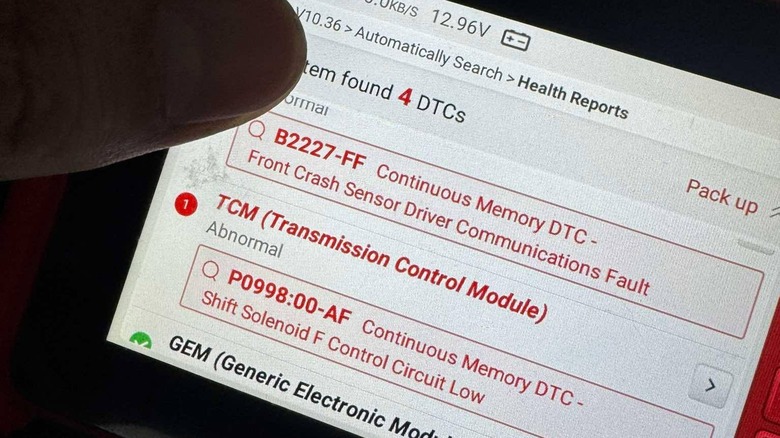Can A Bad Transmission Damage Your Engine
My firsthand experience dealing with used cars has led me on a long and arduous journey of diagnosing and troubleshooting various issues and faults. I've had my fair share of engine misfires, overheating mishaps, pesky check engine codes, and, most recently, transmission faults. My friend bought a 2012 Mazda CX-9 from an elderly and distinguished gentleman, a V6-powered three-row crossover with an all-leather interior, a sunroof, and good looks to match. It drives like a Mazda 6 sedan, and the 3.7 V6 offers plenty of shove.
However, the check engine light and transmission warning lights are on, and the six-speed automatic transmission jerks violently when shifting to Drive (D) or Reverse (R) from Park (P), a condition otherwise referred to as shift shock. Despite the warning lights and the alarming thud whenever we shifted to D or R, the Mazda was otherwise smooth, quick, and driveable, but not until the engine started to overheat and regurgitate coolant. As it turns out, the radiator and engine thermostat were on their last legs, which also caused the automatic transmission to overheat and malfunction.
A quick scan also revealed the P0998:00-AF fault code, indicating a problem with the Mazda's shift solenoid. The shift shock went away after overhauling the entire cooling system, but clearing the fault code necessitates replacing the shift solenoid, which is next on our agenda. The point is, the engine was unaffected by the transmission's lingering issues. A faulty gearbox will not directly damage your engine, but it may lead to accelerated wear and tear, depending on the symptoms.
Mediocre performance is the evil twin of a bad transmission
I once had an old Japanese sedan with an automatic transmission that refused to engage the clutches when shifting to D, especially when cold. I drove it every day, and it was fine, but you'll have to wait 10 or 15 minutes after restarting the car to get going. The funny thing is, I managed to live with the car for a year despite its transmission faults before replacing it with a same-era four-door sedan, and the engine remained unaffected by the transmission tantrums. However, there are some worrying sides to the equation.
Since I had to sit and wait for the gearbox to engage after cold starting the engine, my car's fuel economy numbers went down the drain. Slipping gears and delayed engagements will not only penalize you at the pumps, but they'll also ruin the driving experience. In some cases, this could pose a safety risk by displaying worrying symptoms of common automatic transmission problems, like unexpected acceleration, forward or backward lurches, or difficulty climbing steep gradients.
It may not cause direct damage to the engine, but an automatic transmission that jerks, slips, or has difficulty moving the car forward or backward will cause the engine to work harder and function inefficiently, which in turn may cause more wear and tear to the engine's internal parts later on. If your automatic transmission has fluid leaks, has a whiff of a burned odor, jerks suddenly when shifting, or slips when accelerating, take it to a professional immediately.

